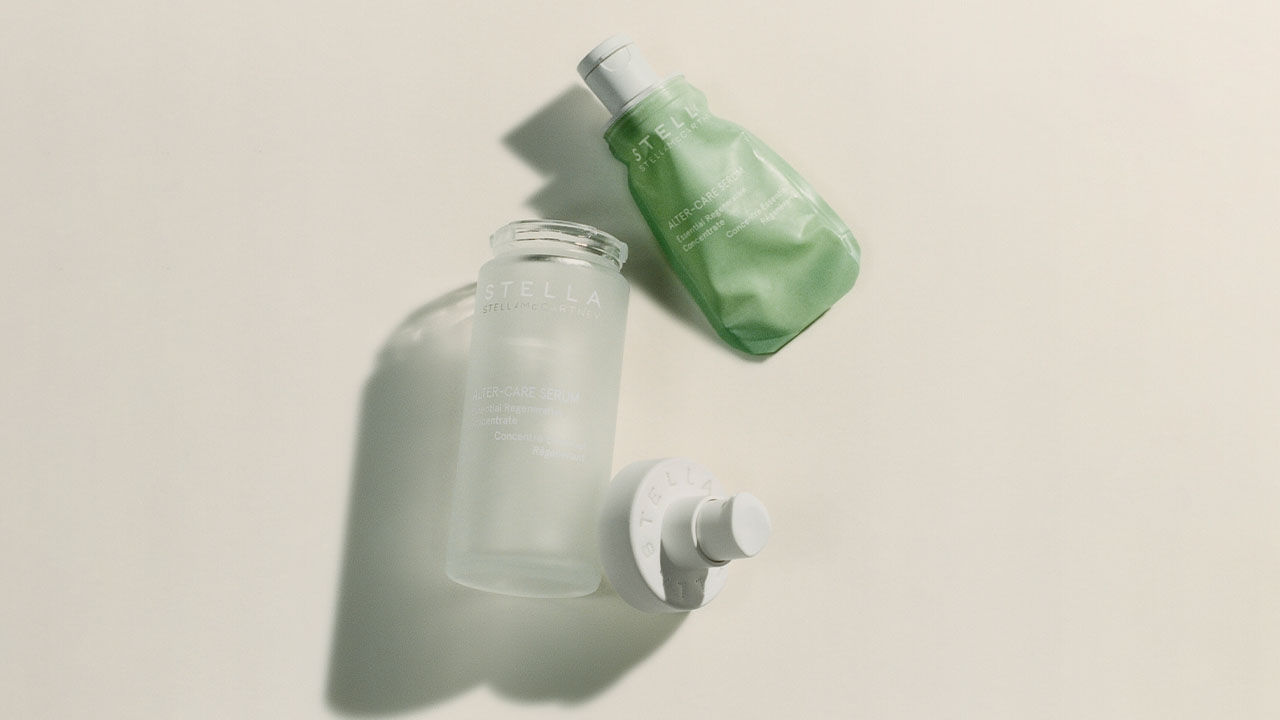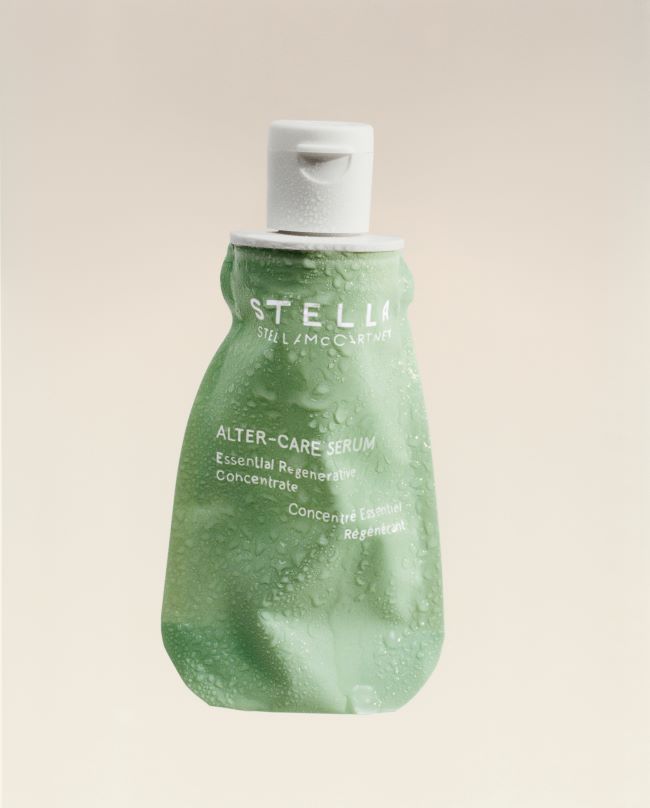Stella McCartney beauty chooses sustainable refill containers
The refillable packaging is made with up to 90 percent of Sabic’s certified renewable polymers

Sabic has joined forces with Stella McCartney Beauty and three French plastic converters (Texen, Leygatech and STTP Emballage) to create a set of new skin and eye care refill containers produced with certified renewable polymers from Sabic’s Trucircle portfolio. The containershave already been introduced in the market in North America and the United Kingdom.
Abdullah Al-Otaibi, general manager, ETP and market solutions at Sabic, said: ‘This innovation marks a significant step forward in transforming the packaging of cosmetics and skin care products to fully sustainable material alternatives. Moreover, it also demonstrates that our certified renewable polymers can facilitate the change-over by providing efficient drop-in solutions with no compromise in processability, purity, quality or convenience.’

The new refill containers have been designed for use with Stella Alter-Care Serum and Restore Cream. They feature three Sabic polyolefin resins with a combined mass-balanced certified renewable feedstock content of up to 90 percent and meet with the vegan branding of the cosmetics manufacturer. The container heads are molded in an impact resistant Sabic HDPE polyethylene (PE) material by Texen, a major player in the market of sustainable cosmetics packaging products. For the container bodies, Leygatech, a manufacturer of barrier and multi-layer films, supplies a film made from Sabic LLDPE (linear low-density polyethylene), which is then processed and printed for finishing the containers by STTP Emballage, a specialized provider of film lamination and flexographic printing services. Flip top closures injection molded by Texen in Sabic PP polymer complete the packaging.
Together with the refill concept of the durable Stella McCartney Beauty containers, the dedicated use of renewable raw materials aligns with consumer demands for a more responsible use of packaging resources. In addition, once the containers have reached the end of their usable lifetime, the material value of the PP and PE polymers can be recovered through established polyolefin recycling.
Sabic’s certified renewable polymers include various polypropylene and polyethylene materials derived from second generation renewable feedstock, that is selected to avoid direct competition with human food and animal feed production and is not linked to any direct or indirect changes in land. A cradle-to-gate lifecycle analysis has confirmed the sustainability of these polymers, concluding that each kg of the company’s bio-based resins reduces CO2 emissions by an average of 4kg as compared to fossil-based virgin alternatives, while at the same time cutting fossil depletion by up to 80 percent. In addition, these plant-based materials facilitate the change-over from existing fossil-based applications without compromises on purity, quality, safety or convenience.
The mass balance of the renewable feedstock in the Sabic materials is validated by independent third-party accounting according to the widely recognized International Sustainability & Carbon Certification (ISCC Plus) regime, following a set of clearly defined and transparent rules. The approach allocates the renewable content used in the production and conversion of the plastic materials to the ultimate application. The certification also provides traceability throughout the partners’ entire supply chain from the feedstock to the final product and allows brand owners to document the sustainability of its packaging towards consumers.
Stay up to date
Subscribe to the free Label News newsletter and receive the latest content every week. We'll never share your email address.

